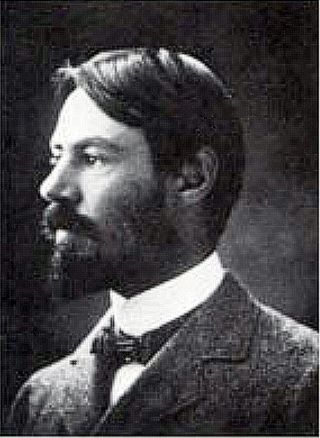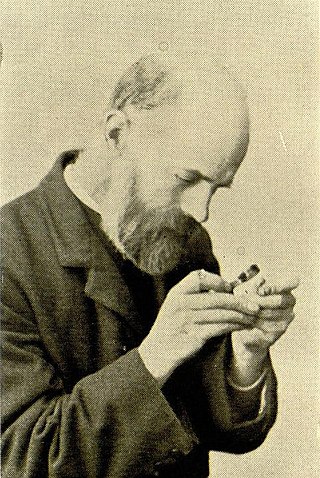Related Research Articles

Imperial College London is a public research university in London, England. Its history began with Prince Albert, consort of Queen Victoria, who developed his vision for a cultural area that included the Royal Albert Hall, the Victoria and Albert Museum, the Natural History Museum and several royal colleges. In 1907, Imperial College London was established by royal charter, unifying the Royal College of Science, the Royal School of Mines and the City and Guilds of London Institute. In 1988, the Imperial College School of Medicine was formed by merging with St Mary's Hospital Medical School. In 2004, Queen Elizabeth II opened the Imperial College Business School.

Crawley is a town and borough in West Sussex, England. It is 28 miles (45 km) south of London, 18 miles (29 km) north of Brighton and Hove, and 32 miles (51 km) north-east of the county town of Chichester. Crawley covers an area of 17.36 square miles (44.96 km2) and had a population of 106,597 at the time of the 2011 Census.

Robert Maurice Lipson Winston, Baron Winston, is a British professor, medical doctor, scientist, television presenter and Labour peer.
George Henry Hamilton Tate was a British-born American zoologist and botanist, who worked as a mammalogist for the American Museum of Natural History in New York City. In his lifetime he wrote several books on subjects such as the South American mouse opossums and the mammals of the Pacific and East Asia.
Armand Marie Leroi is a New Zealand-born Dutch author, broadcaster, and professor of evolutionary developmental biology at Imperial College in London. He received the Guardian First Book Award in 2004 for his book Mutants: On Genetic Variety and the Human Body. He has presented scientific documentaries on Channel 4 such as Alien Worlds (2005) and What Makes Us Human (2006), and BBC Four such as What Darwin Didn't Know (2009), Aristotle's Lagoon (2010), and Secret Science of Pop (2012).

Clive Anthony Stace is a British botanist and botanical author. He studied at King's College London, graduated from University of London in 1959 and then studied at the Natural History Museum, London. He was awarded a PhD in 1963. His academic career was based at the University of Leicester, where he held the post of Professor of Plant taxonomy. He is a past president of the Botanical Society of Britain and Ireland from 1987 to 1989.
Crawley College is a college of further education in West Sussex. It offers courses ranging from Sixth form and Adult education to undergraduate courses through partnerships with universities.

James Sykes Gamble was an English botanist who specialized in the flora of the Indian sub-continent; he became Director of the British Imperial Forest School at Dehradun, and a Fellow of the Royal Society.
Aldermaston Soke is a hamlet that lies on the county boundary between Berkshire and Hampshire, and is administratively part of the civil parish of Mortimer West End, which was transferred from Berkshire to Hampshire in 1879.
Farley Castle is an early 19th-century modern house situated at Farley Hill, Swallowfield, Berkshire.

Joseph Burtt Davy was a Quaker botanist and agrostologist. He was the first curator of the Forest Herbarium (FHO) at the Imperial Forestry Institute when it was founded in 1924 under the Directorship of Professor Robert Scott Troup.

St Michael and All Angels Church is a church in Lowfield Heath, a depopulated former village in the Borough of Crawley, West Sussex, England. Built by the Gothic Revival architect William Burges in 1867 to serve the village, it declined in importance as Lowfield Heath was gradually appropriated for the expansion of London Gatwick Airport and of its related development. The last Anglican service was held there in 2004, but the church reopened in 2008 as a Seventh-day Adventist place of worship. The building has Grade II* listed status, which identifies it as a "particularly important building of more than special interest" and of national importance. It is also the only building remaining in the former village from the era before the airport existed: every other structure was demolished, and the church now stands among warehouses, depots and light industrial units.

Greta Barbara Stevenson was a New Zealand botanist and mycologist. She described many new species of Agaricales.

Rev. William Richardson Linton, Corpus Christi College, M.A., was an English botanist and vicar of the parish of Shirley, Derbyshire. He was regarded as one of the leading batologists of his day.
Ronald Karslake Starr Wood, was a pioneer British plant pathologist, and Professor of Plant Pathology at Imperial College London. He was the first academic to be appointed chair in physiological plant pathology in England and Wales. He was also the first president of the British Society for Plant Pathology and the first president of the International Society for Plant Pathology.
Desmond John Chetwode Crawley, CMG CVO was a British diplomat, who served as administrator under the Raj to Commonwealth diplomat, from the Asian sub-continent to West Africa, and, finally, from behind the Iron Curtain to the Vatican.

The Department of Chemical Engineering, Imperial College London is the centre of teaching and research in chemical and process engineering at Imperial College London, occupying the Aeronautics and Chemical Engineering Extension (ACEX), Bone and Roderic Hill buildings, on the South Kensington campus. Formally inaugurated in 1912, the department has over 40 faculty members, 100 postdoctoral researchers, 200 PhD researchers, 80 taught postgraduates, and 500 undergraduates. The department ranks 7th on QS's 2018 world rankings.

Vanity Fair is a 2018 historical drama miniseries based on the 1848 novel of the same name by William Makepeace Thackeray. It was produced by Mammoth Screen and distributed by ITV and Amazon Studios.
The Imperial College COVID-19 Response Team is a group of experts from Imperial College London studying the COVID-19 pandemic and informing the government of the United Kingdom, and governments and public health agencies around the world. The team comprises scientists from the MRC Centre for Global Infectious Disease Analysis, the Jameel Institute, the Imperial College Business School and the Department of Mathematics. The Imperial College COVID-19 Response Team is led by Professor Neil Ferguson, Director of the Jameel Institute and MRC GIDA.

William Brown was a British mycologist and plant pathologist, known for his ground-breaking research on fungal physiology and the physiology of plant parasitism by fungi, carried out in 1912–28. Born in rural Scotland and educated at the University of Edinburgh, he spent nearly all his career at the Imperial College of Science and Technology in London, where he created the plant pathology research school in the 1920s, becoming Britain's first professor of plant pathology in 1928, and heading the department of botany (1938–53). He was president of the Association of Applied Biologists and the British Mycological Society. He studied Botrytis cinerea, which causes grey mould in a variety of plants, and various Fusarium species that attack apples.
References
- ↑ "Publications - m.crawley". Imperial College London. Archived from the original on 16 June 2011. Retrieved 3 April 2010.